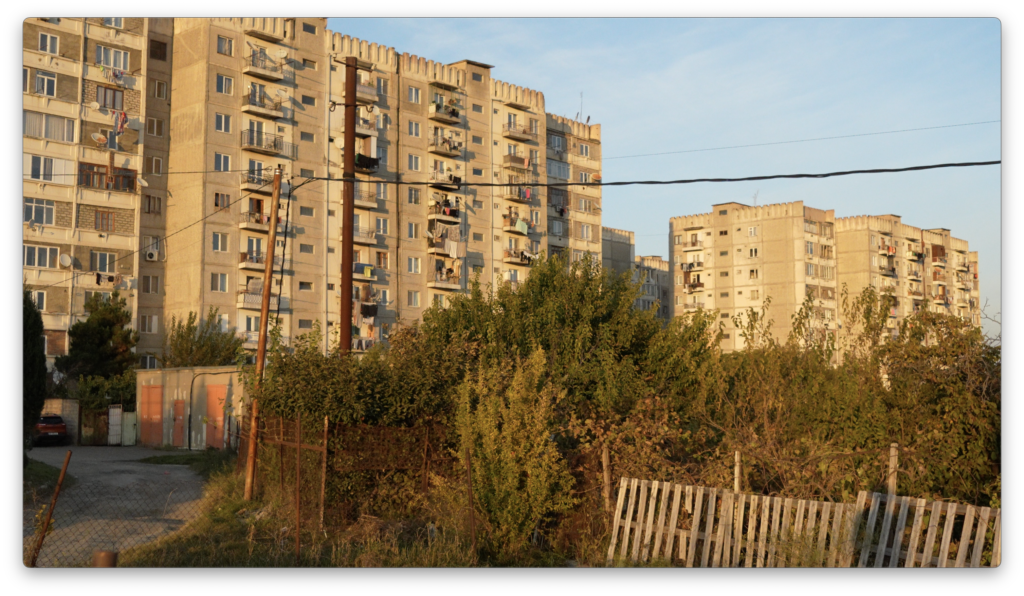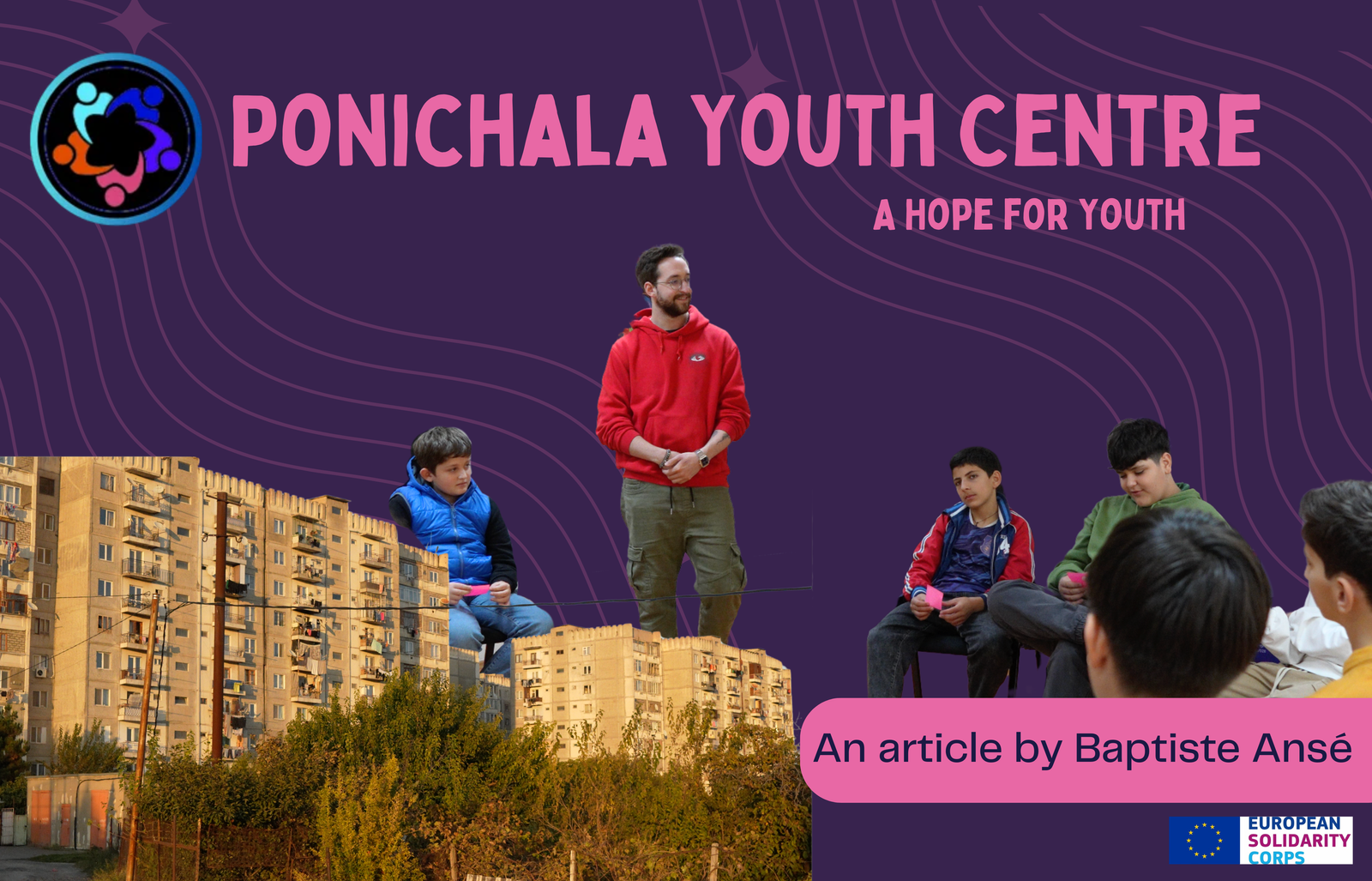“Here, the children see the world differently”: in disadvantaged Ponichala neighbourhood, a centre gives the youth hope
Despite its reputation in Georgia’s capital Tbilisi, in the neighbourhood of Ponichala a Youth Centre, a place where European volunteers use non-formal education methods to give youth the opportunity to develop and imagine a better future, challenges the stereotypes.
“I never set foot there. From what I heard, Ponichala is one of the most disadvantaged neighbourhoods of Tbilisi”, begins Mariam, a Sociology student from the Georgian capital city. “If you hear the media, there is a lot of drug traffic and crime.” Reading the national daily 24 Saati, her words make sense: “A young man has been killed – three people were arrested”, “Prosecutor’s department charged someone with attempted homicide and intentional injuries.” This media coverage creates a collective representation. In the field, is it still the expected ‘no-go area’, or is there another local reality?

Final stop : Ponichala
In bus number 344, connecting Tbilisi’s city centre and Ponichala, it’s a whole melting pot of dialects: from Azerbaijani up front, to Georgian at the back. Through the windows, one can contemplate the imposing mountains overlooking the soviet buildings. “Terminus Ponichala”, says the metallic voice through the speakers. The first step out already feels like a leap backwards. Surrounded by fading facades and walls covered in cracks, the balconies where coloured and fresh laundry is drying contrast the ageing blocks. However, one can still feel the air filled with a warm energy: teenagers pass a football across the damaged streets while the elders play backgammon or chat around an improvised table.
Wandering around the streets, a two-floor building stands out thanks to its light blue render. Right in front of it, children on a playground are following the call of their teacher – Olivier Rousseau. For some time, this French volunteer became their English teacher in Ponichala’s Youth Centre. A “gamarjoba”, receives cheerful smiles as their French moustachioed teacher enters the centre, which operates under the “Tbilisi Sports and Youth Center,” fully funded by the Tbilisi City Hall.

“There is still a large gap with the outer world”
“Wind blows to those who have brothers and sisters”, shouts Olivier to his class, all sitting in a circle of chairs. Immediately, those to whom it applies get up and change places. “Since it is an extracurricular activity, it has to be fun”, jokes the volunteer and future teacher. “I try to find the right balance between learning and pleasure”. Objective reached since Mate, a 13-year-old student, goes: “the learning methods are more enjoyable here, and we have the opportunity to learn foreign languages with foreign people”. Lizi backs his point, arguing that “education is better here, because it’s less strict and there are no exams”.
Non-formal education, a model centred on personal development, practical competences and community engagement, is the heart of the teaching methods of this centre founded in 2016. To provide these methods, it receives young people from 18 to 30 years as part of the EU-funded European Solidarity Corps (ESC). Some organise foreign language conversation clubs, like French or German, while others implement original workshops like basketball, board games or painting. “Here, the kids can have a different social life from their school or family”, asserts Luzia, an 18-year-old German volunteer. “For us, it is a beginning”, adds Eliso Mukataridze, manager of this place and originally from Ponichala. “There is still a large gap with the rest of the city, but thanks to the volunteers, who form almost half of the teaching group, the students discover the world from another perspective.”

“In Tbilisi, one still points out this neighbourhood as the one with the least opportunities”
“We have to support the young people from this neighbourhood by giving them spaces and opportunities for their personal development, their education or even just recreational activities”, argues Eliso. “Ponichala is known as disadvantaged because of its crime rate, but between these walls, we are trying to make a difference”. Eliso, beyond managing the whole place, also goes around the neighbourhood to advertise the Youth Centre, reminding people that everything is free, while language classes are usually very expensive. “Some think that it would be a waste of time for their kids”, she declares, sighing.
However, the centre’s work is paying off. Among the 198 beneficiaries, some of them stand out – like Nini, a 15-year-old high school student. “I have been coming here for a few years, and I even convinced my sister Anastasia to come too”, she reveals to us with impeccable English. “It broadened my horizons, opened me up to new cultures and today, I would like to study and become an architect.”
Baptiste Ansé
Translated from French by Olivier Rousseau and Fynn Segner

